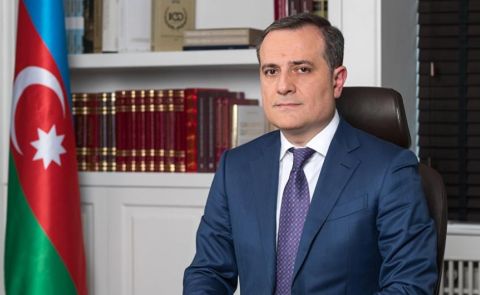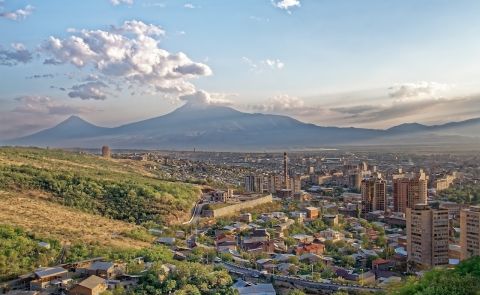
South Caucasus countries in EU Parliament’s foreign policy implementation report

On 17 February, the EU Parliament released its annual report on the implementation of its common foreign and security policy, highlighting the major actions the EU needs to undertake in order to assume a global leadership role.
The document reaffirmed unwavering support to the Eastern Partnership (EaP) countries, especially as regards their independence, sovereignty, and territorial integrity within their internationally recognised borders as well as “the respect for the will of the people to decide their own future and foreign policy, free from outside interference.” The report called for the full implementation of the Association Agreements with Georgia, Moldova, and Ukraine and the Comprehensive and Enhanced Partnership Agreement with Armenia. The document also underlined the need to continue negotiations on the Comprehensive and Enhanced Partnership Agreement between the EU and Azerbaijan in accordance with the conditions set out by the European Parliament in its recommendation of 4 July 2018 on the negotiations on the EU-Azerbaijan Comprehensive Agreement.
A special emphasis was placed on the status of Georgia and Ukraine within the EaP countries. The Parliament stressed that Tbilisi and Kyiv may apply to join the EU provided that they adhere to the Copenhagen criteria and the principles of democracy, respect for fundamental freedom and human and minority rights, and uphold the rule of law. The annual report 2021 called on the EU and its Member States to recognise Georgia’s and Ukraine’s European perspective, which “is considered vitally important for the countries’ security and stability, as well as a driver for them to continue implementing internal reforms.”
In the paragraph on Georgia, the Parliament called for the full implementation of the Association Agreement with the country, adding that it supports the EU’s principle of conditionality and differentiation, including incentives. The EU Parliament also expressed support to Georgia’s territorial integrity and condemned Russian occupation of Georgian territories — Abkhazia and Tskhinvali Region (South Ossetia). In this context, it reminded Moscow of its international obligations under the 2008 ceasefire agreement mediated by the EU under the French Presidency and called on Russia to act in a constructive manner and to allow progress in the Geneva International Discussions. It also called on Russia to cease its human rights violations in the occupied regions of Georgia and reminded Moscow of its legal obligation as the power exercising ‘effective control,’ as noted in the European Court of Human Rights ruling in the case of Georgia v Russia. The report further condemned “the provocations by the occupying forces, including the kidnapping of Georgian citizens, killings, illegal detentions and the persistent borderization.”
A paragraph of the report was also committed to the status of Nagorno-Karabakh in the aftermath of the war. The Parliament called on the EU, its Member States, and the Vice President/High Representative for the common foreign and security policy to actively engage in finding a lasting settlement between Armenia and Azerbaijan and to prevent a further escalation of tensions, notably by pressing Azerbaijan and Armenia to address post-war issues, including the demarcation of borders and the release of all remaining prisoners of war. The report also noted that the OSCE Minsk Group remains the “only internationally recognised format for the resolution” of this conflict, based on the principles of territorial integrity, non-use of force, self-determination and equal rights, and peaceful resolution of conflicts; calls for its swift return to its mediating role.
See Also


Nordic-Baltic Delegation Meets Armenian Leaders to Discuss Regional Cooperation and Peace

Azerbaijan Strengthens Energy Partnerships with Multiple Countries

BP Strengthens Presence in Azerbaijan’s Offshore Energy Sector

Netanyahu’s Letter to Aliyev: Mutual Trust, Solidarity Following Hamas Attacks, Facilitating Dialogue Between Israel and Türkiye

